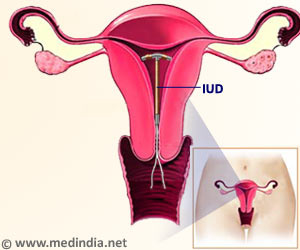Nadya Suleman, the now famous octuplet mother, could prove a huge drain on the US exchequer.
Nadya Suleman, the now famous octuplet mother, could prove a huge drain on the US exchequer. As a single parent with no income, she could receive thousands of dollars a month in government assistance.
The woman has 14 children, including the newborns. She has no job, no income and owes $50,000 in student loans.Still, the 33-year-old woman said she's confident that she can afford to raise her huge family, insisting she can do it without welfare. In an interview Tuesday with NBC, she said she could use student loans to make ends meet until she finishes graduate school and gets a job.
Suleman told NBC that she planned to go back to Cal State Fullerton, where she is earning a master's degree in counseling. Once she receives the degree, she said, she will get a job and be able to financially support the children.
Suleman used to work as a psychiatric technician at Metropolitan State Hospital, where she suffered an injury in 1999. During a riot involving 20 people, a patient overturned a heavy wooden desk on her back. After the incident, Suleman only briefly returned to work and she continued to experience ongoing back problems from a herniated disc.
Suleman’s family is eligible for large sums of public assistance money. Even before she gave birth to the octuplets Jan. 26, the woman was receiving $490 in monthly food stamps, and three of her children were receiving federal supplemental security income because they are disabled.
If Suleman's disabled children received the maximum payment, she would get nearly $2,900 a month in state and federal assistance, including the food stamps.
Between 2000 and 2008, she received $169,353 in temporary disability payments, it is reported.
Advertisement
Her octuplets qualify for Medi-Cal, California's healthcare program for the poor.
Kaiser gathered 46 doctors, nurses and other medical professionals together to perform the delivery, Kimi Yoshino and Jessica Garrison said, reporting for Los Angeles Times. Who will pick up the bill on that account is not clear.
All the same, Suleman insisted to NBC's Ann Curry in an interview taped Tuesday that she's not seeking a public handout now.
"I'm not living off any taxpayer money," she said. "If I am, if it's food stamps, it's a temporary resource. And I was so reluctant. I very much so look forward to the day when I am not getting any kind of help with food stamps, which I believe will end when I graduate in about a year or year and a half."
Suleman also said she hopes that two of her children will soon no longer be disabled.
Suleman also bristled at suggestions made by some commentators that she was being irresponsible for having so many children with no income or partner to help raise them.
"No. I am not being selfish. . . . If I were just sitting down watching TV and not being as determined as I am to succeed and provide a better future for my children, I believe that would be considered to a certain degree selfish," she said.
Mercifully, Suleman told NBC that she doesn't plan any more children. "100%. 200, 300 400%. Yes, done," she said.
Suleman said she was married once. But the relationship ended when she realized "that I wasn't in love at all with him. I was in love with having children."
Suleman's ex-husband, Marcos Gutierrez, a produce manager at a salad company, declined to comment extensively about his ex-wife but said she's a good person.
"Nadya, she is a person with a great heart. . . . She's a nice person, with great love for her kids. That's all I have to say," he said.
Meanwhile, medical experts continued to question Dr. Michael Kamrava, the fertility specialist believed to have treated Suleman. Although she did not mention him directly, she named his West Coast IVF Clinic in Beverly Hills as the place where she sought treatment.
Dr. R. Dale McClure, president of the American Society of Reproductive Medicine, said the association has contacted both Suleman and Dr.Kamrava to learn more about the circumstances leading to her pregnancy.
"Only when we obtain and evaluate such information will we be able to determine an appropriate course of action," McClure said.
Source-Medindia
GPL/L








